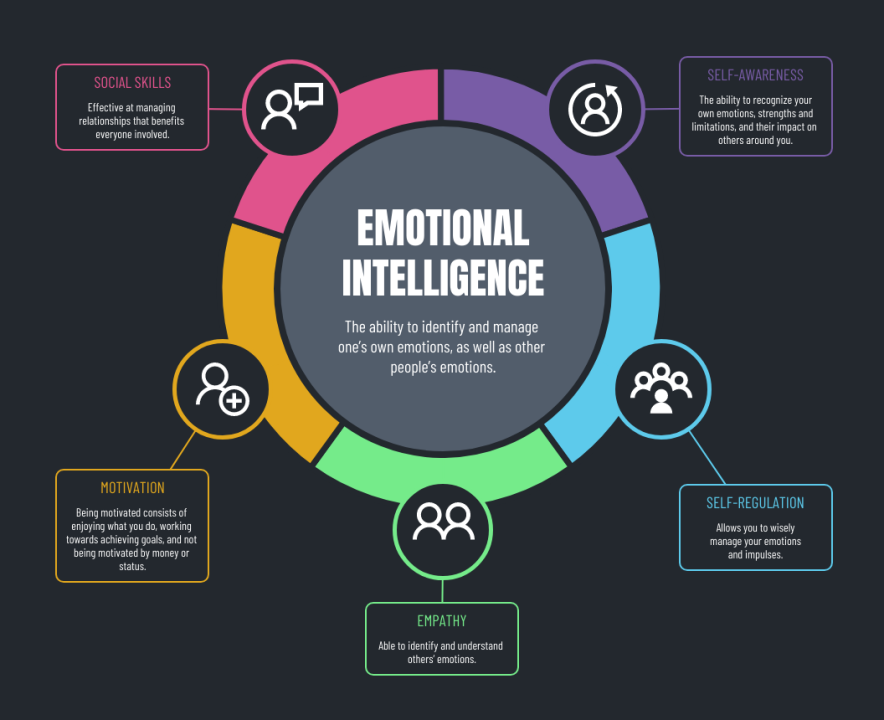Unlocking the Power Within – 5 Practices to Boost Self-Awareness
Discover the secret key to personal transformation: 5 proven practices that ignite self-awareness and unlock your limitless potential.
Self-awareness is the foundation of personal growth and development. It is recognizing and understanding our thoughts, emotions, and behaviors. By cultivating self-awareness, we gain valuable insights into ourselves, enabling us to make positive changes and lead a more fulfilling life. In this blog post, we will explore five practices that can help unlock the power of self-awareness and enhance personal growth.
Practice 1: Mindfulness Meditation
Mindfulness meditation is a powerful technique that allows us to be fully present and aware of our thoughts, feelings, and sensations. Practicing mindfulness allows us to observe our thoughts without judgment and develop a deeper understanding of ourselves. To incorporate mindfulness meditation into your daily routine, consider trying the following techniques:
- Breathing exercises: Focus on your breath, inhaling and exhaling slowly. Notice the sensations in your body as you breathe.
- Body scan: Close your eyes and bring your attention to different body parts, starting from your toes and moving up to your head. Notice any physical sensations or areas of tension.
Regular mindfulness meditation can reduce stress, increase self-awareness, and improve well-being. Set aside a few minutes each day to incorporate mindfulness into your routine and observe its positive impact on your self-awareness.
Practice 2: Journaling and Reflection
Journaling is a powerful tool for self-discovery and self-reflection. By putting our thoughts and feelings onto paper, we can gain valuable insights into ourselves and our experiences. To make the most of journaling, consider the following tips:
- Stream of consciousness: Write freely and without judgment, allowing your thoughts and feelings to flow naturally onto the page. This can help uncover deep-rooted emotions and patterns of behavior.
- Gratitude journaling: Take time each day to write down things you are grateful for. This practice cultivates a positive mindset and helps shift our focus towards the blessings in our lives.
In addition to writing, reflect on your previous journal entries. Notice recurring themes or patterns and explore how they relate to your self-awareness. Regular journaling and reflection can lead to a deeper understanding of yourself and facilitate personal growth.
Practice 3: Seeking Feedback
Seeking feedback from others is a valuable practice for enhancing self-awareness. Trusted individuals or mentors can offer valuable insights and perspectives that we might be blind to. To actively seek feedback, consider these strategies:

- Specific asking: Rather than asking for general feedback, be clear about the areas you want feedback on. This allows others to provide more targeted and actionable insights.
- Open-mindedness: Approach feedback with an open mind and a willingness to learn. Even if the feedback is difficult to hear, remember that it is an opportunity for growth.
Incorporating feedback into our self-awareness journey allows us to understand better how our actions and behaviors impact those around us. It helps us identify blind spots and areas for improvement, ultimately leading to personal growth and stronger relationships.
Practice 4: Practicing Self-Reflection
Self-reflection is a powerful practice for enhancing self-awareness. It involves taking the time to introspect and contemplate our thoughts, feelings, and actions. To practice self-reflection, consider the following exercises:
- Silent contemplation: Find a quiet space, sit still, and observe your thoughts without judgment. Notice any recurring patterns or underlying emotions that arise.
- Questioning assumptions: Challenge your assumptions and beliefs. Ask yourself why you think a certain way or react in certain situations. This helps uncover deep-seated beliefs and thoughts.
Regular self-reflection allows us to become more aware of our behavior patterns and enables us to make conscious choices. It brings clarity and insight into our thoughts and emotions, facilitating personal growth and self-awareness.
Practice 5: Emotional Intelligence Development
Emotional intelligence is closely linked to self-awareness. It involves recognizing and understanding our own emotions and the emotions of others. To develop emotional intelligence, consider the following practices:

- Empathy: Put yourself in others’ shoes and try to understand their perspective and feelings. This helps cultivate compassion and enhances our understanding of human emotions.
- Active listening: Pay attention to others during conversations and listen without interrupting or judging. This allows us to respond empathetically and foster deeper connections.
- Self-regulation: Practice managing your own emotions and responses. Pause before reacting and choose responses that align with your values and goals.
Developing emotional intelligence enhances our self-awareness by deepening our understanding of ourselves and others. It allows us to navigate relationships with empathy and improves our ability to manage our own emotions effectively.
Conclusion
Cultivating self-awareness is a transformative journey that requires consistent effort and practice. By incorporating these five practices into your routine – mindfulness meditation, journaling and reflection, seeking feedback, practicing self-reflection, and developing emotional intelligence – you can unlock the power within and experience personal growth like never before. Embrace the power of self-awareness and embark on a journey of self-discovery and continued personal growth.






